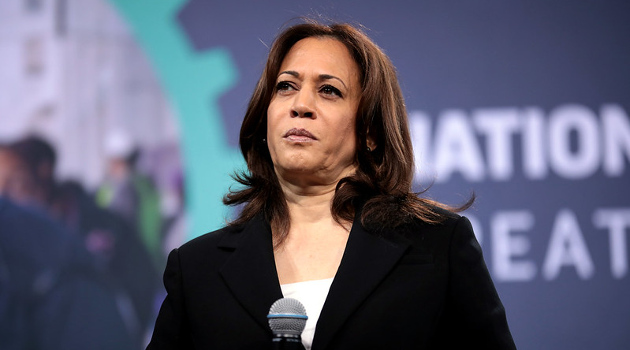Originally published by The Telegraph on October 28, 2024.
Election years can be dangerous because politicians have extra incentive to push bad policies. Donald Trump has floated all sorts of gimmicky tax cuts, such as ending taxes on tips, Social Security, and overtime pay. He’s also said that he would like to eliminate the income tax altogether for cops and firefighters (and maybe everyone else!), while creating a tax loophole for interest on car loans. Who knows what other voting bloc will be offered goodies by election day.
Needless to say, Trump has not proposed a single penny of savings on the spending side of the budget. To the contrary, he actually wants to further expand the burden of government. So the Republican version of Santa Claus wants lower taxes for lots of voters along with more giveaways for some others.
What about Kamala Harris? She’s also playing Santa Claus, having proposed several trillion dollars of additional redistribution spending. She intends to finance some of that new spending with various class-warfare taxes such as higher personal tax rates and higher business tax rates.
Those tax hikes, while economically destructive, are relatively easy to understand and administer. What is shocking, however, is that Harris is also proposing to impose a 25 per cent tax on unrealised capital gains. If an affected taxpayer owns an asset that increases in value from Year 1 to Year 2, that “gain” would be subject to the 25 per cent tax even though nothing has been sold and the taxpayer doesn’t have any additional money.
There are five things to understand about this radical proposal.
First, it is bad for workers to impose higher taxes on investment and entrepreneurship. The Veep’s proposed tax on unrealised gains would exacerbate the US tax code’s bias against saving and investment (thanks to the capital gains tax, corporate income tax, double tax on dividends, and death tax, the IRS can tax the same money multiple times). This means less money being set aside to finance productivity-enhancing inventions, innovations, and industry.
Second, the tax would be an administrative nightmare. Taxpayers and the Internal Revenue Service would have to squabble every year over the value of a taxpayer’s assets. That would not be difficult for publicly-traded stocks and bonds, but it would be well nigh impossible when considering other assets – everything from privately-held companies to personal possessions such as artwork. Tax lawyers and accountants are probably salivating at the thought of this plan becoming law.
Third, a tax on unrealised capital gains could be viewed as a backdoor wealth tax. The hard-Left of the Democratic Party (Bernie Sanders, Elizabeth Warren, et al) has been agitating for years in favour of a punitive annual levy on the assets of rich people. Those proposals have not garnered much support, in part because a wealth tax almost certainly would be rejected by the courts. A tax on unrealized gains is a way of going after the same taxpayers. The only difference is that it would be a tax on changes in wealth rather than a tax on the stock of wealth.
Fourth, no nation in the world has ever tried to impose a tax on unrealised gains. Even hard-core Leftist governments such as Venezuela have never contemplated such an intrusive and destructive levy. Nor have Europe’s greediest welfare states tried to impose such a tax.
Fifth, supporters of the tax claim that it would only apply to rich people. Indeed, they assert that it would apply to less than 1 per cent of the population. That may sound reassuring to ordinary voters … until they realise that the first income tax back in 1913 also applied to less than 1 per cent of households. Yet that “tax on the rich” eventually morphed into the monstrous internal revenue code that plagues America today.
The relevant question to ask at this point is why Vice President Harris has gravitated to an untested and risky idea. There are probably three reasons.
- The proposal has already been proposed by a Senator and supported by President Biden, so it was very simple to pull it off the shelf and make it part of her plan.
- The proposal allegedly will generate (at least in theory) hundreds of billions of dollars in revenue and Harris needs to pretend that her overall plan won’t boost red ink.
- It is part of the Left’s longstanding class-warfare agenda of telling voters that endless goodies can be financed by taxing only upper-income households.
Advocates of limited government have a grim choice on November 5. No matter who wins the election, the burden of government almost certainly will increase. But will voters choose to add an extraordinarily destructive new tax to the mix?
———
Image credit: Gage Skidmore | CC BY-SA 2.0.

